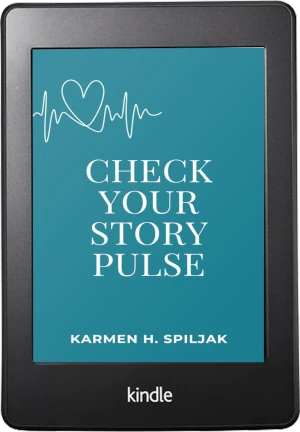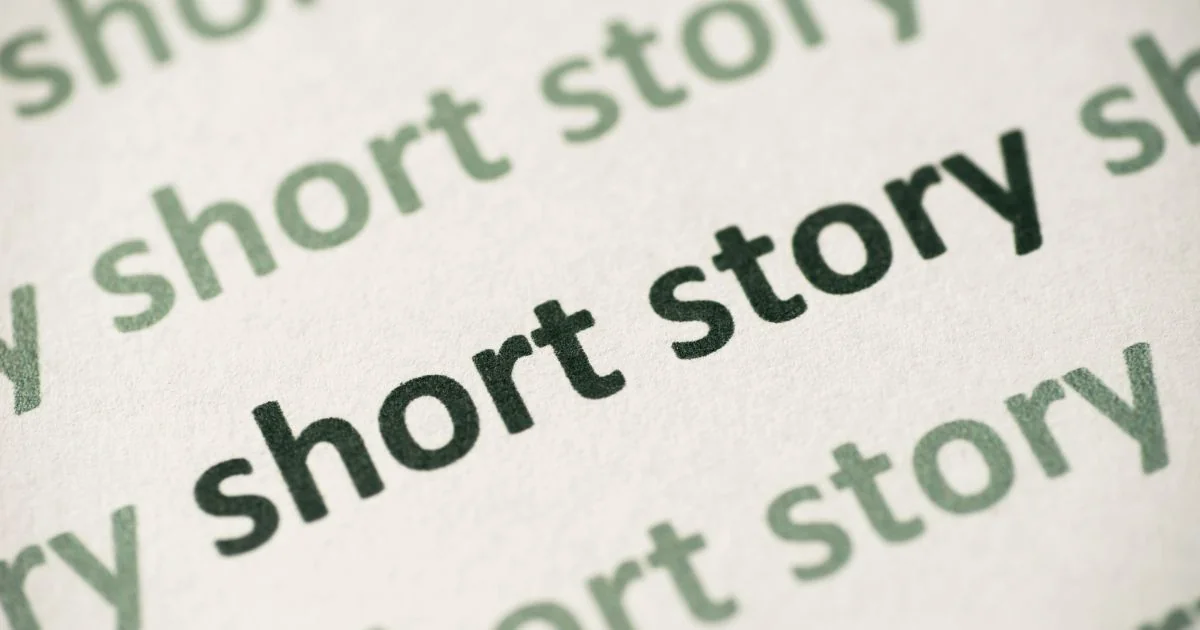Want to sharpen your story instincts in fewer words and come out stronger on the other side?
There’s a reason so many authors cut their teeth on short stories before writing their breakout novel. The short form may be compact, but it doesn’t go easy on you and that’s the whole point.
Short stories demand clarity. Precision. Voice. Stakes. Character. If a novel gives you a wide, sweeping canvas, a short story hands you a napkin and says, ‘Go on, impress me and make it fast.’ And once you learn to do that, your novel writing? It levels up.
Let’s unpack why short fiction is a masterclass in disguise.
1. Character development: No hiding in short form
Short stories are ruthless when it comes to character. If your protagonist is as flat as a pancake, the reader will clock it immediately – there’s no room to pad or disguise weak development. You’ve got between 2,000 and 6,000 words to show us who this person is, what they want, and how they arrived at this point in life.
So, forget generic tell-y lines like ‘She was a klutz’ or ‘He was cheap’. You’ve got to show it: the woman who trips over a cat-shaped vase while trying to tidy up, the man who ducks out of the pub just before it’s his round. Real detail. Real life.
And motivation? That matters too. The reader doesn’t need their entire life story, but they do need a reason to care. Why are they doing what they’re doing? What’s driving them? What’s at stake if they fail?
Short stories force you to get to the heart of a character fast. Which means you get sharper at building characters who pull their weight from the very first page. That skill translates directly into stronger novels. Less flab, more impact. To see how it’s done in practice, check out N.K. Jemisin’s brilliant short story ‘Cuisine des Mémoires’ on LeVar Burton Reads Podcast.
2. Conflict and tension: The Tightrope Walk
Novels often follow the character’s arc of change. But short stories? They’re more about conflict – one central, juicy problem that the story gnaws on from start to finish.
Your character might not change by the end, but the world around them probably will. Or they might resist change entirely, and the story becomes about how they resist. Either way, it’s the conflict that ignites the spark.
The challenge: you’ve got to establish, escalate, and resolve that conflict with pace and precision. Every beat has to earn its place. Dialogue, internal thought, narrative summary – every element has to build towards that boiling point.
Not sure your story has enough tension? Go back to the moment you first seeded the conflict. Is it early enough? How visible is it? You’ll want to build it like an iceberg, hiding the bulk and showing only a jagged peak above water. Are you letting it fester, rise, and snap?
When you practise this in short stories, you develop a sixth sense for narrative tension. That will make your novels tauter, leaner, and far harder to put down.
3. Backstory: The Story Seasoning
Just because your story is short doesn’t mean your characters come out of nowhere. You still need to know what made them who they are, their wants, wounds, and the path that led them here.
But here’s the trick: the reader doesn’t need all of it. In fact, if you give them too much, they’ll check out.
Let’s say your protagonist is tangled in a family feud that began four generations ago. Do we need the entire family tree, including the great-aunt who swiped someone’s cow? Absolutely not. A single well-placed line, ‘The feud poisoned the family long before she was born’ can do more than three paragraphs of backstory ever could.
Writing short stories teaches you to treat backstory like seasoning: enough to bring the dish to life, but never so much that it overpowers the plate. And once you learn to wield that restraint? Your novel backstories become more potent, not less.
Cutting backstory is one of the most common notes I give as a developmental editor. Trust me, less is more.
4. Beginnings and endings: Open Stronger, End Shaper
Novels might give you a page or two to hook the reader. Short stories give you a handful of lines or less.
That means your first sentence has to do serious heavy lifting. It’s not just a hello; it’s a promise. A mystery. A punch in the gut. A whisper you can’t ignore.
Take this zinger from Margaret Atwood’s ‘Stone Mattress’: ‘At the outset Verna had not intended to kill anyone.’
Straight away: who’s Verna? Who might she kill? What changed her mind? You’re in. Hooked. No escape.
That’s the kind of magnetic pull you want. When I write short stories, one of my favourite beta reader questions is: ‘When did the story get interesting?’ If it’s not in the first paragraph, then I go back and cut stuff out.
And the ending? It doesn’t have to tie everything up with a bow. In fact, short stories often get away with ambiguity, surprise, even open-endedness. But it does need to satisfy. It needs to feel like a payoff, not a fizzle.
Steven Millhauser’s ‘Miracle Polish’ is a masterclass in this. It starts with: ‘I should have said no to the stranger at the door…’
Already, we feel the regret. The mystery. The sense that something irreversible is about to happen. And it ends with a callback that transforms that regret into something else entirely: ‘In a voice that is calm, but decisive and self-assured, I’ll tell him that I want every bottle, every last one… the beginnings of unbearable hope.’
A beginning anchored in doubt. An ending filled with strange, desperate hope. You don’t get that kind of emotional arc without earning it in every line.
All in all, short stories aren’t just warm-up acts for novels. They’re brutal, brilliant masterclasses for every storytelling muscle you need to build a novel that matters.
They’ll teach you to write cleaner, tighter and braver. They’ll show you where your weaknesses are and how to fix them. And they’ll get you to the heart of your story faster, sharper, with more bite.
So if your novel’s feeling bloated or murky, step away for a bit. Write a short story. Strip it all down to the essentials. Your novel will thank you for it.












